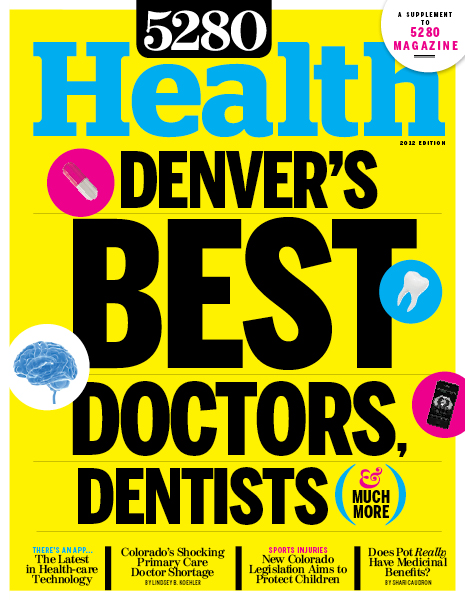The Local newsletter is your free, daily guide to life in Colorado. For locals, by locals.
I try not to look at the clock on the wall, but the hands seem to be moving in super slow motion. I heave an audible sigh.
“The ER goes by severity of injury, not wait time,” the security officer tells me.
His words aren’t encouraging. My purple, softball-size knee doesn’t stack up well against the competition. An older woman to my right has an irregular heartbeat. A man wearing a Korean War cap sitting to my left complains of chest pain. There are at least a dozen others; I’m just too far away to overhear their grievances. My phone buzzes.
It’s my girlfriend. Let me know when you get looked at.
I text her back. I will. Still waiting.
As I shove my iPhone into my pocket, I realize my boneheaded mistake almost immediately. Pulling the phone back out, I call up my apps. There, staring at me from the second page of icons, is iTriage. In my pain and panic, I’d forgotten all about my newly downloaded health-care app.
iTriage is the flagship product of a Colorado-based health-care technology company called iTriage LLC, founded by Drs. Peter Hudson and Wayne Guerra. I had downloaded the free app more than a month earlier to prepare for a meeting with the physicians. “The only health-care app you’ll ever need,” Guerra had told me. “That’s our goal.”
Right then my goal was to get good medical care—and quickly. I opened iTriage and really looked at it for the first time. The app is user-friendly but extensive. It stores your health records; it searches a database of doctors’ offices, hospitals, and pharmacies based on your phone’s current location; it provides ER wait times and preregistration for hospitals that offer those services; it connects you with nurse advice lines; it searches thousands of symptoms, diseases, prescriptions, and medical procedures; and it allows you to review results that include pictures and videos.
Hudson and Guerra, both practicing emergency department physicians, cooked up the iTriage idea in 2008 after years of seeing patients struggle to make good decisions about when to go to the ER, and which one to go to. “The ER is there for whoever needs it,” Hudson says. “But getting people to the right level of care based on some sort of structured information ahead of time—it’s really, in our minds, to everybody’s benefit.”
Speaking with Hudson and Guerra in their Lakewood-based offices that day, I hadn’t realized the power of iTriage. But as I sit in an unfamiliar California ER—it’s now been more than an hour and a half—I understand why more than 3 million people have downloaded the app and why nearly 60 percent of iTriage downloaders remain iTriage users.
After the car wreck that sent me to the ER and my girlfriend’s son to the local children’s hospital, I could have done things differently. I could have researched which nearby hospitals would be best for us. I could have found locations and directions to the nearest pharmacy instead of driving around in circles. Instead of admitting to the ER nurse that I had no idea when my last tetanus shot was, I could have referenced my health record. And instead of sitting in an emergency room for more than six-and-a-half hours—my X-rays were negative, by the way—I could have found a facility with a much shorter wait time.









